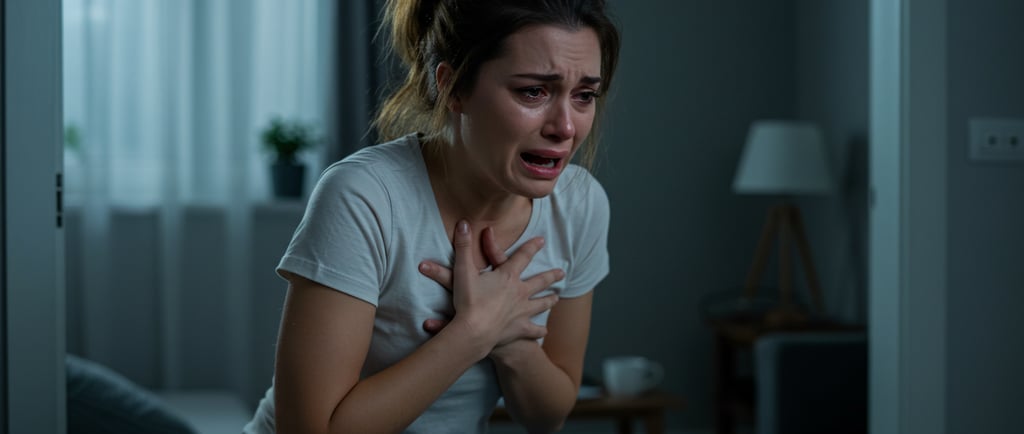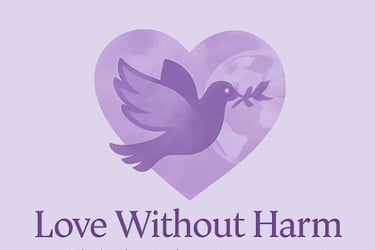How Domestic Violence Affects Neighbors: The Hidden Impact of Witnessing Abuse
Domestic violence is often seen as a private matter, but its effects ripple far beyond the home. Neighbors who hear or witness fights, shouting, or violence next door can experience significant emotional, psychological, and even physical distress. As a survivor and advocate, I know how crucial it is to recognize that domestic violence doesn’t just harm the direct victims—it also traumatizes those who are forced to listen, intervene, or live in fear of what might happen next.
DOMESTIC VIOLENCEDOMESTIC ABUSE
Davida Roze
6/13/20252 min read


The Emotional Toll on Neighbors
1. Anxiety and Fear
Hearing violent arguments or physical altercations can leave neighbors feeling helpless and afraid. They may worry about:
"Should I call the police? Will it make things worse?"
"What if someone gets seriously hurt?"
"Is my own family safe if the abuser becomes aggressive toward others?"
This constant state of alertness can lead to chronic anxiety, sleep disturbances, and even symptoms of PTSD.
2. Guilt and Moral Dilemma
Many neighbors struggle with whether or not to intervene. They may feel guilty for not doing more, even when they fear retaliation or don’t know how to help. Others may call the police, only to see the victim return to the abuser, leaving them feeling frustrated and powerless.
3. Secondary Trauma
Repeated exposure to violence—even as a bystander—can cause secondary trauma, especially for children who overhear fights. The sounds of screaming, objects breaking, or even silence after a violent outburst can leave lasting emotional scars.
How Neighbors Can Help (Without Putting Themselves at Risk)
If you suspect domestic violence in your neighborhood, here are some ways to support victims while staying safe:
1. Call the Police (If It’s Safe to Do So)
If you hear an active violent incident, calling 911 could save a life. Even if the victim doesn’t press charges, documentation helps build a legal case later.
2. Offer Subtle Support
If you know the victim, a simple, "I’m here if you ever need to talk" can make a difference. Avoid confronting the abuser directly, as this could escalate danger.
3. Share Resources
Slip a note with the National Domestic Violence Hotline (1-800-799-SAFE) or a local shelter’s info under their door or in their mailbox.
4. Support Domestic Violence Awareness
Advocate for better community responses by:
Encouraging landlords to take DV reports seriously
Supporting local shelters and nonprofits
Educating others about the signs of abuse
Breaking the Silence:
Why We Must Acknowledge the Wider Impact
Domestic violence isn’t just a "family issue"—it’s a community issue. By recognizing how it affects neighbors, we can create safer, more supportive environments where victims feel less isolated and bystanders know how to help.
If you’ve been affected by witnessing domestic violence, your feelings are valid. You’re not alone—and your awareness could save a life.
Have you ever witnessed domestic violence in your neighborhood? How did it impact you? Share your thoughts in the comments (anonymously if needed).
Resources:
National Domestic Violence Hotline: 1-800-799-SAFE (7233) | thehotline.org
RAINN (Sexual Violence Hotline): 1-800-656-HOPE (4673)
Love Without Harm lovewithoutharm.org
Crisis Text Line: Text HOME to 741741
If you or someone you know is in immediate danger, call 911.
(This post was written by Survivor/Advocate/Author/Mentor/Relationship Coach Davida Roze. If you'd like to share your story or need support, reach out confidentially.)
#domesticviolence #domesticviolenceadvocacy #domesticviolencesurvivor #davidaroze #lovewithoutharm
Empowerment & Healing
Love Without Harm Global Healing Movement
Join us to end domestic violence together.
contact@lovewithoutharm.org
© 2026 Davida Roze All rights reserved | www.davidaroze.com | www.davidarozestore.com | www.davidarozebooks.com


